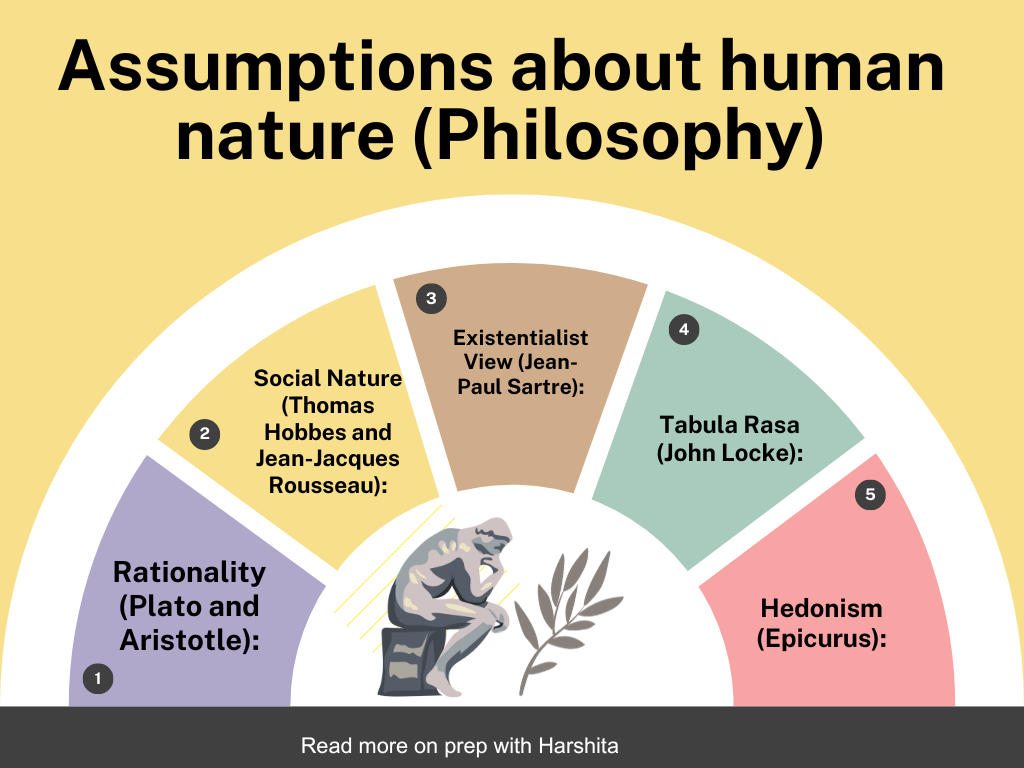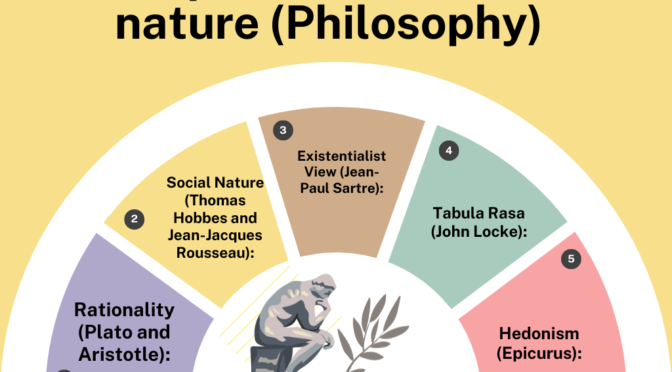Philosophers have proposed various assumptions and perspectives on human nature throughout history. These assumptions often shape philosophical theories and ethical frameworks.
Let’s discuss some assumptions about human nature in philosophy:
Rationality (Plato and Aristotle):
Plato and Aristotle, among others, assumed that humans are rational beings capable of reasoning and understanding the world. This assumption forms the basis for much of classical philosophy, emphasizing the importance of cultivating reason and intellect.
Social Nature (Thomas Hobbes and Jean-Jacques Rousseau):
Hobbes and Rousseau had contrasting views on human nature. Hobbes assumed that humans are inherently selfish and driven by a desire for self-preservation. He famously described the natural state of humanity as “solitary, poor, nasty, brutish, and short,” advocating for a social contract to maintain order. In contrast, Rousseau assumed that humans are naturally good but corrupted by society. He believed that in their natural state, people were peaceful and cooperative.
Also Read: Relationship of Education and Philosophy
Existentialist View (Jean-Paul Sartre):
Existentialist philosophers like Sartre assumed that human nature is characterized by radical freedom and responsibility. Sartre famously declared that “existence precedes essence,” suggesting that individuals define themselves through their choices and actions.
Tabula Rasa (John Locke):
John Locke’s assumption of the “tabula rasa” (blank slate) posits that humans are born with minds like a blank slate, and knowledge is acquired through experience and sensory perception. This assumption has implications for understanding the role of education and environmental influences in shaping individuals.
Dualism (Descartes):
René Descartes assumed a mind-body dualism, separating the mind and body into distinct substances. He believed that the mind (or soul) was immaterial and distinct from the physical body. This assumption has had a significant impact on philosophy of mind discussions.
Hedonism (Epicurus):
Epicurus assumed that humans are naturally inclined toward seeking pleasure and avoiding pain. His philosophy, known as Epicureanism, advocated for a simple and modest life focused on the pursuit of pleasure, particularly intellectual and emotional well-being.
Also Visit: Prep with Harshita


